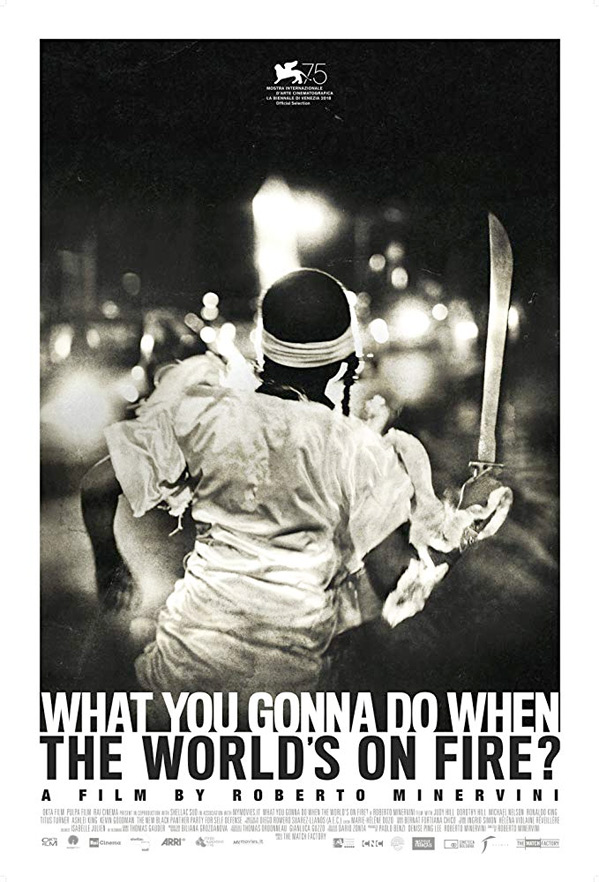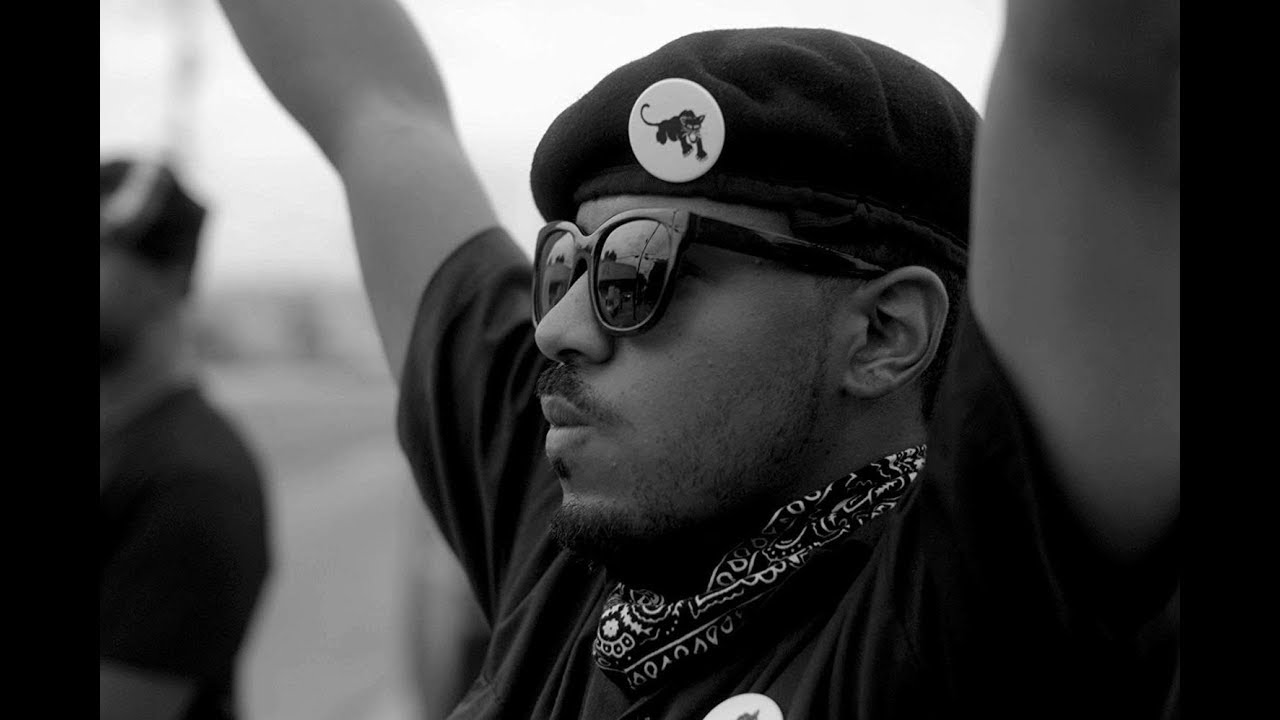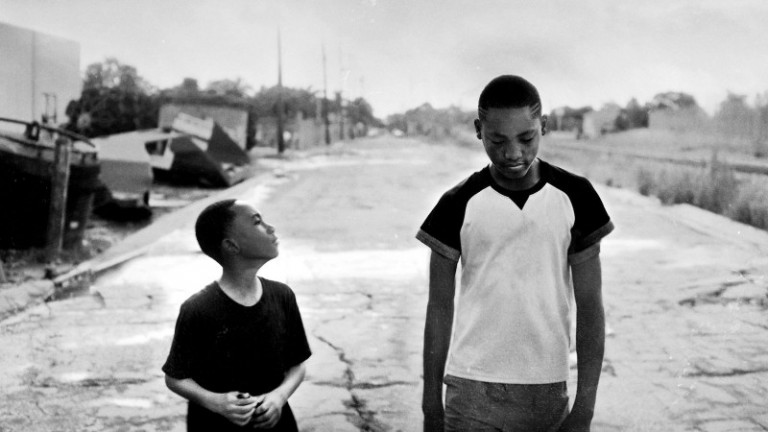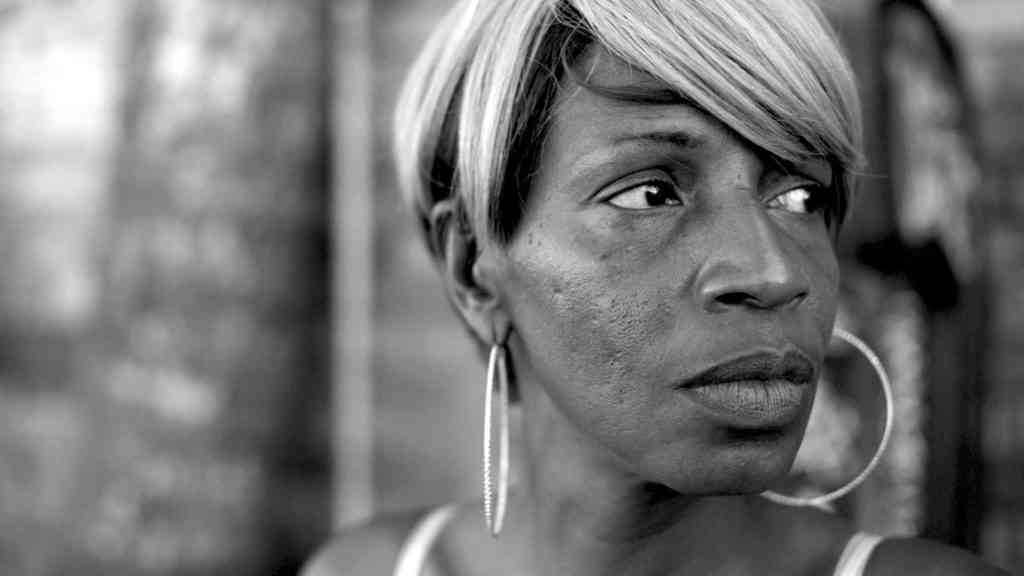By Glenn Dunks
 The streets of New Orleans are the setting for US-based Italian-born Roberto Minervini’s latest examination of the American south. If nothing else, his newest documentary sports the year’s best title. It’s a title that asks a question that many of us have probably asked ourselves, from seats of privilege.
The streets of New Orleans are the setting for US-based Italian-born Roberto Minervini’s latest examination of the American south. If nothing else, his newest documentary sports the year’s best title. It’s a title that asks a question that many of us have probably asked ourselves, from seats of privilege.
The title actually comes from a slave-era spiritual, which only further highlights the tragic ways that African Americans have been inflicted by the force of racism across all of its forms for centuries. The contemporary age of Trump is sadly not unique and so there is a particular irony to be found in the answer to the titular question. For many the answer is whatever they need to do to get by. Whether that be protest, go to work, trawl the streets for teenage kicks, or rehearse for Mardi Gras. For most without the agency of privilege, when the world is on fire it’s just a struggle to not get burnt...

We meet an older small business owner, Judy, whose dive bar is a haunt for locals to tell war-stories from the streets of America. There are Ronald and Titus, two young boys aged 14 and 9 who are trying to pass their days and whose age gap spotlights the evolution of many young men across the early teens. The third story belongs to The New Black Panther Party for Self Defence recruitment and in particular on one member, Kevin, and the eventual protest of the police shooting of a black man. Lastly, although less prominent through the narrative, some time is devoted to the “Mardi Gras Indians” who prepare for their traditional festivities.
Unlike the director’s previous films – works like Low Tide, The Other Side, which played at Cannes, or Stop the Pounding Heart, which found some mild attention on the fringes in 2014 – What You Gonna Do When the World’s on Fire? is filmed in richly evocative black and white from cinematographer Diego Romero Suarez-Llanos, full of deep ink-like shades of black with heavy contrast. It reminded me of Tony Kaye’s Lake of Fire. It is a beautiful film to look at with many arresting images including intensely personal close-ups and in particular the almost freeing joy that can come from dance and movement.
But ultimately, the film conflicted me. I struggled to determine what exactly Minervini’s intent was. Was it to present his subjects as hard working, hard fighting individuals on their own frontlines? I’d believe it if it were.

However, I also couldn’t erase from my mind how performative the film felt. Perhaps performative isn’t the right word, but the director nonetheless has a style that blurs the line between drama and nonfiction. I have yet to grapple with my feelings over what that may or may not say about his thoughts about his subjects. There is a gloss to What You Gonna Do... that made me question what I was seeing and left me uncertain about it once the end credits rolled.
And then there is the more obvious challenge of its, shall we say, rambling narrative. For all the director’s panache in finding captivating subjects and fleeting moments of vivid grace and profound sadness, the end result is rather frustrating. While its 123-minute runtime has many stretches that superbly observe his subjects as they seek ways to overcome the daily aggressions – micro or otherwise – that come with being black and poor in a place that the world appears to have forgotten, Minervini and editor Marie-Hélène Dozo struggle to mold it into something altogether cohesive. Its two hours feel more like three as its cinematic successes are unwound by its excesses.
Compare this to RaMell Ross’ Hale County This Morning, This Evening, which navigated similar terrain, but was able to make a far greater impact in just 76 minutes and about one tenth of the words. But then perhaps a film with a title as unwieldly in its connotations as What You Gonna Do When the World’s on Fire? should confound, existing in a place of uncertainty. At least, as a work of cinema, it asks questions rather than provides easy answers of arthouse activism.

Release: In limited released from this week.
Oscar chances: After last year's collection of nominees, anything feels possible and it was a big hit out of last year's Venice Film Festival where it won some five or so awards. It will likely be on the branch's list of must sees. It could definitely make the shortlist.